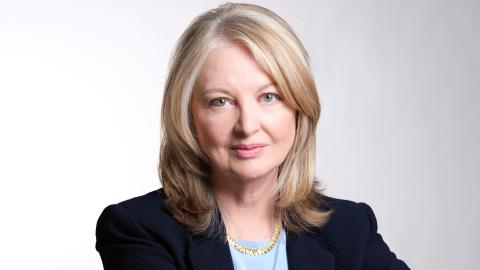The right to dissent. The right to practice religion. The right of women to be equal. All basic human rights, but Iraq's new constitution isn't likely to recognize any of them.
Negotiations over Iraq's permanent constitution are heading toward founding a state governed by sharia, Islamic law – and perhaps by an extreme version of that law. If extreme sharia rule is adopted, it will set back America's long-term strategy of strengthening moderate Muslim voices and signal a devastating defeat for President Bush's goals of fostering freedom and democracy in the Muslim world.
Such law is now applied in Iran and Saudi Arabia and a handful other of the most repressive places on the planet. It is also the declared goal of Abu Musab al-Zarqawi in Iraq and Islamist terrorists everywhere.
In just over one week, Iraq's constitution will be finalized, and in less than three months it will be put to a referendum. The document's language continues to stipulate that "sharia is the main source of law" and includes a "repugnancy clause" that states no law can contradict Islam. Fundamental rights to free expression, religion and association are limited with the undefined phrase "in accordance with the law," which can be interpreted as sharia, while women's equality is explicitly tied to a proviso that it not violate "Islamic sharia."
Any one of these three legal formulations would be sufficient to give an opening for rule by extreme Islamic law.
Extreme sharia is state-enforced Islamic law that is seen to be sacrosanct – given directly by Allah without human mediation. In civil law democracies, the people through their elected representatives decide what is lawful, but in extreme sharia states, only those who claim to have a perfect knowledge of divine will can set society's rules. The sharia system and its laws and judgments are effectively placed beyond the realm of debate, criticism and accountability.
Some state-enforced sharia pronouncements, such as a ban on alcohol, can be consistent with a free society. However, failure to recognize the human agency in the interpretation and application of sharia forecloses the possibility of individual rights and undermines democratic institutions.
The draft constitution doesn't specify who will interpret sharia, leaving the door wide open for unelected clerics or other Islamic experts to supplant the legislature and exercise unbridled power to veto and even make laws. In extreme sharia states, religious minorities, including Muslim minorities, are treated as a danger to the social order for having rejected the state ideology and are systematically discriminated against, if tolerated at all. Even Muslims of the dominant sect who dissent from government orthodoxy or challenge the official version of sharia risk state prosecution for blasphemy and related offenses.
Iraq's current Transitional Administrative Law banned detentions for "political or religious beliefs," but that provision has now been dropped. The likelihood of prosecutions for blasphemy is reinforced by the draft's failure to formulate religious freedom as a right of the individual. In such systems, voices of reform and moderation can all too easily be crushed.
Women will be among those most affected by sharia law. Explicitly subjecting a woman's right to equality to "Islam," the draft jeopardizes her ability to defend herself in court, since extreme sharia states give less weight to women's testimony. Furthermore, the repugnancy clause could mean her rights regarding marriage, inheritance, child custody and other "personal status" matters will be governed by sectarian law whether or not this is spelled out. Without an individual right to religious freedom, Iraqi women have no right to opt out of religious control.
Extreme sharia states tend to foster anti-Americanism. Their governing ideology is based on an extreme dichotomy that divides existence into two spheres: Islamic, equated with all that is good, and infidel, which is bad. This requires an official posture of hostility toward the West, one that is broadcast from the state media, taught in state schools and preached from state-sanctioned mosques. Iraq's most revered Shiite leader, Ayatollah Sistani, seen as a moderate and known to urge toleration for Iraq's indigenous Chaldo-Assyrian Christians, nevertheless counsels on his Web site that infidels are best to be avoided, and himself has refused to meet with American officials. In a sectarian state, this could become the tenor of foreign policy.
This plan for the radical transformation of Iraq has been introduced into the draft, without public debate or a legislative mandate. In Washington a month ago, Prime Minister Ibrahim Jafari gave assurances that the Shiite parties would not seek sharia rule since Iraq is a "pluralist society." Terrorist violence and neighborhood-based Shiite vigilantism have also worked to mute a public critique of sharia rule. But an open debate about sharia rule is critically needed. Most Iraqis, who, like most of the world's Muslims, have never lived in an Islamic state, may not fully understand its radical implications.
Because of a false multiculturalism, unfamiliarity with sharia law and a misguided "respect for the democratic process" that could result in the negation of democracy itself, U.S. advisers for Iraq's constitution have generally avoided the topic of sharia. But at this fateful juncture in Iraq's political history, it should be an American as well as Iraqi priority that this debate takes place.
With Iraq's political future at stake, American and Iraqi democrats need to find their voice. No American blood should be spilt for the creation of a sharia rule state.















